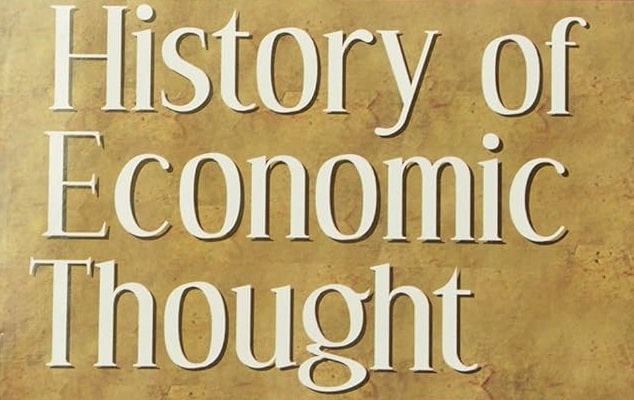The history of economic thought studies the evolution of ideas and theories developed by economists over the years.
This story begins in the 16th and 17th centuries with mercantilism. However, in a broader sense, the economy began to develop in the 6th century BC until the Middle Ages. During this time, the first businesses and the first economic debates arose.
Although economic theories were scarce, debates focused on the difference between rich and poor and the ethics of enrichment through trade.
The birth of economic science
The birth of economics as a field of study, as we have said before, would arise from the 16th century. Beginning with mercantilism and ending today with neoclassicism. Currently, new theories have emerged from the point of view of microeconomics and macroeconomics. Chronologically we could order the periods in a simplified way as follows:
- Origin of the economy (VI BC – XVI): Greece, Rome and the Middle Ages
- Mercantilism (XVI – XVII)
- Physiocrats (XVIII)
- Classics (XVIII – XIX)
- Marxists (XIX – XXI)
- Neoclassical (XIX-XXI)
- Keynesians (XX -XXI)
- Liberalism (XX-XXI)
It is important to understand that some of these schools of thought coexisted and coexist. Economics is not an exact science. And since it is not an exact science, there are many different philosophies regarding what economics is or should be. Studying the history of economic thought is important because it helps develop a critical attitude towards different economic approaches. In addition, it improves understanding of current economic theories.
Difference between economic history and history of economic thought
A reasonable doubt that we must address is the difference between these two fields of study. Economic history and the history of economic thought are similar and even complementary disciplines, but not the same. Economic history tries to describe how events happened.
The history of economic thought, for its part, tells how the ideas of different economists have evolved throughout history. Thus, economic history can help us understand why certain schools of thought emerged. Conversely, the history of economic thought can help us understand the development of economic events.
For example, Marxist economics emerged at a time in history when there was a lot of exploitation. Workers spent long hours in factories in very poor conditions for unfair wages. To make matters worse, their wages barely allowed them to eat and support themselves. On the contrary, the economic policies that were used after the crash of 1929 (back in 1940) were those proposed by Keynes.
Key points
- The history of economic thought studies the evolution of economic ideas.
- It formally begins with mercantilism in the 16th and 17th centuries.
- Currents such as Marxism and Keynesianism emerged from specific historical contexts.

